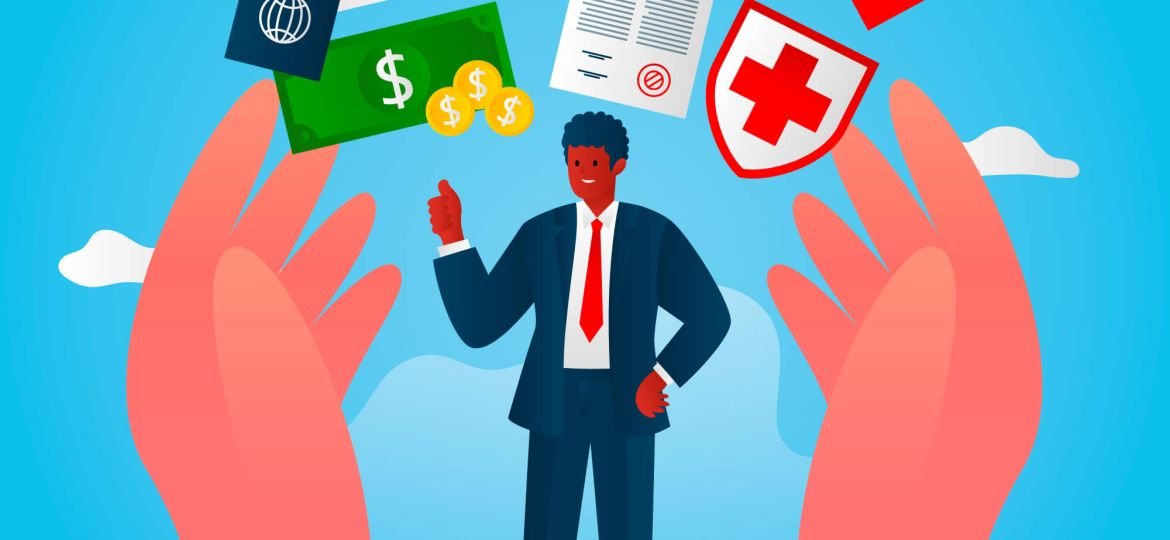
As someone who has faced significant medical bills without the safety net of insurance coverage or dedicated health savings, I know firsthand how stressful and overwhelming it can be. The prospect of being stuck with thousands of dollars in medical debt is enough to keep anyone up at night. But the good news is, there are strategies you can employ to ease the financial burden and ensure you get the care you need.
In this guide, I’ll share practical tips and insights on how to manage medical expenses when you lack insurance or designated health savings. From negotiating with providers to exploring alternative payment options, we’ll cover a range of effective approaches that can help you navigate this challenging situation. So, whether you’re facing an unexpected medical emergency or simply need to address ongoing healthcare costs, read on to discover a path forward.
Understanding Your Medical Bills
The first step in managing medical expenses without insurance is to thoroughly understand the charges you’re facing. Request detailed itemized bills from your healthcare providers and carefully review each line item. This will help you identify any potential errors or areas where you may be able to negotiate.
When reviewing your bills, pay close attention to things like:
- Charges for specific procedures, tests, or medications
- Fees for facility usage, such as the hospital or clinic
- Costs for anesthesia, nursing staff, or other ancillary services
- Any discounts or adjustments that have been applied
If you spot any discrepancies or questionable charges, don’t hesitate to reach out to the provider’s billing department and request an explanation. In many cases, you may be able to get certain fees reduced or even eliminated altogether.
Negotiating with Providers
One of the most effective strategies for managing medical expenses without insurance is to negotiate directly with your healthcare providers. Many hospitals and medical practices are willing to work with uninsured patients to find a reasonable payment solution.
When negotiating, be polite, but firm. Explain your financial situation and ask if they offer any discounts or payment plans for self-pay patients. Some common negotiation tactics include:
- Requesting a “self-pay” or “cash” discount – Many providers offer reduced rates for patients who pay upfront or in full.
- Asking about sliding scale fees – Some clinics and hospitals have programs that adjust charges based on your income level.
- Proposing a payment plan – Work with the provider to set up an affordable monthly payment arrangement.
- Inquiring about charity care or financial assistance – Many healthcare organizations have programs to help low-income patients cover their bills.
Remember, the key is to be proactive and don’t be afraid to advocate for yourself. The worst they can say is no, but you may be surprised by how willing some providers are to work with you.
Exploring Alternative Payment Options
In addition to negotiating with your healthcare providers, there are other creative ways to pay for medical expenses without insurance or dedicated savings. Here are a few options to consider:
Medical Credit Cards
Some healthcare facilities offer their own branded credit cards that patients can use to finance their medical bills. These cards often come with special financing terms, such as 0% interest for a set period of time. However, be cautious of high-interest rates or deferred interest that can quickly accumulate if you don’t pay off the balance within the promotional period.
Personal Loans
Taking out a personal loan from a bank, credit union, or online lender can be a viable option for covering large medical bills. Personal loans typically have lower interest rates than credit cards and allow you to spread the payments out over a longer period. Just be sure to shop around and compare terms to find the most favorable deal.
Crowdfunding
In recent years, crowdfunding platforms like GoFundMe have become a popular way for people to raise money for medical expenses. By sharing your story and reaching out to your social network, you may be able to generate enough donations to cover some or all of your bills. Just be aware that crowdfunding campaigns can be time-consuming and may not always meet your full financial needs.
Payment Plans with Providers
As mentioned earlier, many healthcare providers are willing to work with uninsured patients to set up manageable payment plans. This can allow you to pay off your bills in smaller, more affordable installments over time, rather than having to come up with the full amount upfront.
Applying for Medicaid or Other Assistance Programs
If your income falls below a certain threshold, you may qualify for Medicaid or other state-based health insurance programs that can help cover your medical costs. Additionally, some nonprofit organizations and local charities offer financial assistance for those struggling with healthcare bills.
Preventive Measures and Long-Term Strategies
While the strategies outlined above can be helpful for managing immediate medical expenses, it’s also important to consider long-term solutions to avoid similar financial challenges in the future. Here are a few proactive steps you can take:
Building an Emergency Fund
One of the best ways to prepare for unexpected medical costs is to establish a dedicated emergency fund. Aim to save enough to cover at least 3-6 months’ worth of living expenses, including potential healthcare bills. This financial cushion can provide a critical safety net when you need it most.
Exploring High-Deductible Health Plans
If you’re unable to obtain comprehensive health insurance, consider looking into high-deductible health plans (HDHPs). These plans typically have lower monthly premiums but require you to pay a higher deductible before coverage kicks in. While not ideal, an HDHP can still offer some level of protection against catastrophic medical expenses.
Investing in Preventive Care
Making your health a priority by focusing on preventive care can go a long way in reducing your overall medical costs. This includes things like regular check-ups, screenings, and maintaining a healthy lifestyle. By catching potential issues early, you may be able to avoid more expensive treatments down the line.
Comparison Shopping for Healthcare Services
Much like you would for any other purchase, it’s important to shop around and compare prices when it comes to healthcare services. This can include everything from routine doctor visits to elective procedures. Don’t be afraid to ask providers about their rates and explore alternative options that may be more affordable.
Comparison Table: Financing Options for Medical Expenses
| Option | Pros | Cons |
|---|---|---|
| Medical Credit Cards | – 0% interest for a promotional period – Convenient for paying bills over time | – High interest rates after promotional period – Potential for deferred interest charges |
| Personal Loans | – Lower interest rates than credit cards – Longer repayment terms | – May require good credit to qualify – May have origination fees |
| Crowdfunding | – Can tap into your social network for support – No need to repay funds | – Time-consuming to set up and promote – May not meet full financial needs |
| Provider Payment Plans | – Flexible, manageable installments – No interest charges | – May still require a significant down payment |
| Medicaid/Assistance Programs | – Can cover all or most of your medical costs – No repayment required | – Income eligibility requirements may be strict – Application process can be complex |
Comparison Table: Preventive Measures and Long-Term Strategies
| Strategy | Benefits | Drawbacks |
|---|---|---|
| Building an Emergency Fund | – Provides a financial cushion for unexpected medical expenses – Can help you avoid taking on debt | – Takes time to build up a sufficient balance – Funds may be tempting to use for non-medical purposes |
| High-Deductible Health Plans | – Lower monthly premiums – Can still offer protection against catastrophic costs | – Higher out-of-pocket deductibles before coverage kicks in – May not provide comprehensive coverage |
| Preventive Care | – Can help catch and address health issues early – May reduce the need for more expensive treatments | – Ongoing costs for routine check-ups and screenings – Some preventive services may not be covered by high-deductible plans |
| Comparison Shopping | – Can help you find the most affordable healthcare providers and services – Empowers you to make informed decisions | – Time-consuming to research and compare options – May require calling multiple providers to get pricing information |
Ready to take control of your finances? Visit upgrade.com now to explore a range of financial products, including Personal Loans, Auto Refinance Loans, Home Improvement Loans, Personal Credit Lines, and Upgrade Card. Let Upgrade help you achieve your financial goals today!
Conclusion
Navigating the challenges of managing medical expenses without insurance or dedicated health savings can be daunting, but it’s not an impossible feat. By understanding your bills, negotiating with providers, exploring alternative payment options, and taking proactive long-term measures, you can find a path forward that helps you get the care you need without breaking the bank.
Remember, you are not alone in this journey. There are resources and support systems available to assist you, whether it’s through government programs, nonprofit organizations, or your own personal network. Don’t be afraid to reach out and advocate for yourself – your health and financial well-being are worth the effort.
With a little creativity, persistence, and a willingness to explore different strategies, you can take control of your medical expenses and find a solution that works for your unique situation. So, take a deep breath, and let’s get started on your journey to financial wellness and better health.
Frequently Asked Questions (FAQs)
1. Can I negotiate my medical bills if I don’t have insurance?
Yes, you can absolutely negotiate your medical bills even if you don’t have insurance. Many healthcare providers are willing to work with uninsured patients to find a payment solution that fits their financial situation.
2. What is a medical credit card, and how does it work?
A medical credit card is a financing option specifically designed to cover healthcare expenses. These cards often come with promotional periods of 0% interest, allowing you to pay off your bills over time without accruing additional charges.
3. How do I know if I qualify for Medicaid or other assistance programs?
Qualifications for Medicaid and other assistance programs vary by state and are based on factors like income, family size, and specific health needs. You can typically find eligibility criteria on your state’s Medicaid website or by contacting a local healthcare navigator.
4. Are there any tax implications for using crowdfunding to cover medical expenses?
In most cases, funds raised through crowdfunding for medical expenses are considered gifts and are not taxable income. However, it’s always a good idea to consult with a tax professional to ensure compliance with relevant laws.
5. Can I set up a payment plan with my healthcare provider for ongoing treatment?
Yes, many healthcare providers offer payment plans for patients receiving ongoing treatment or care. These plans allow you to spread out the cost of services over time, making it more manageable for your budget.
6. How can I compare prices for healthcare services before receiving treatment?
You can compare prices for healthcare services by calling different providers and asking about their rates. You can also use online tools and resources that help you estimate costs based on your location and the type of service you need.
7. What should I do if I receive a medical bill that seems too high or incorrect?
If you receive a medical bill that you believe is too high or contains errors, contact the provider’s billing department to request an itemized statement and clarification on the charges. You have the right to dispute any inaccuracies and negotiate for a fair resolution.
8. Are there any free or low-cost healthcare clinics available for uninsured individuals?
Yes, there are many free or low-cost healthcare clinics that provide basic medical services to uninsured individuals. These clinics may offer services like check-ups, screenings, vaccinations, and preventive care at reduced rates or no cost.
9. How can I protect my credit score if I’m struggling to pay my medical bills?
If you’re having difficulty paying your medical bills, it’s important to communicate with your healthcare provider and explore payment options before your bill goes to collections. Setting up a payment plan or seeking financial assistance can help prevent negative impacts on your credit score.
10. What should I do if I can’t afford my prescription medications?
If you’re struggling to afford your prescription medications, talk to your healthcare provider about generic or lower-cost alternatives. You can also inquire about patient assistance programs offered by pharmaceutical companies or explore discount prescription drug cards available at many pharmacies.

















